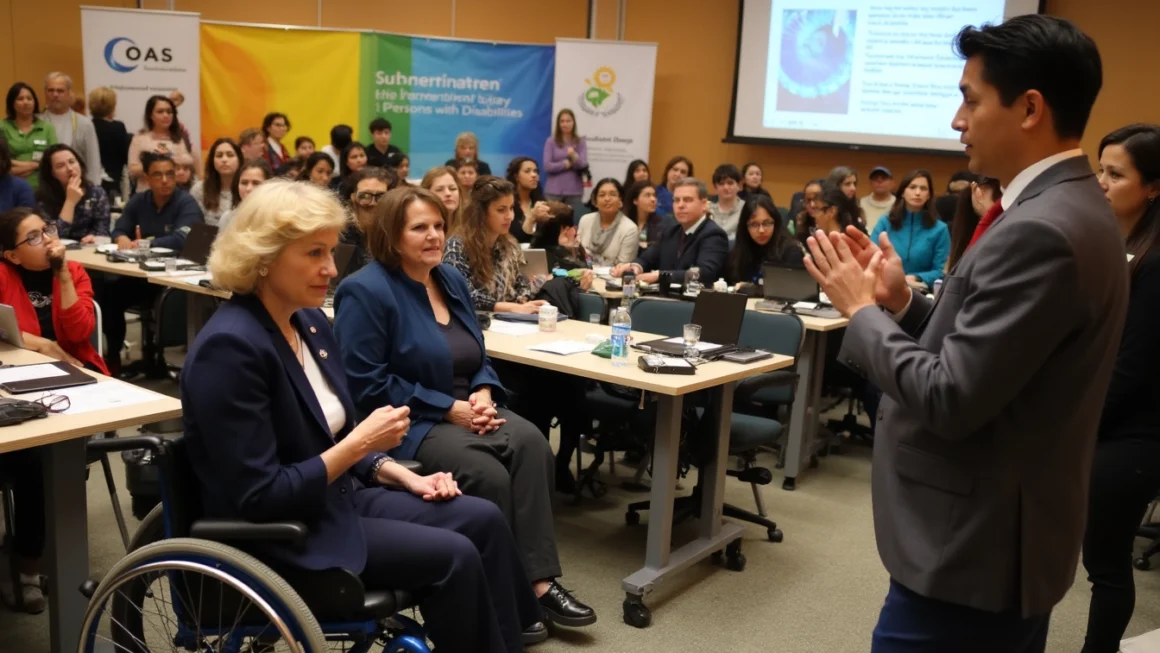On December 3rd, the Organization of American States (OAS) joined the global community in commemorating the International Day of Persons with Disabilities. This significant occasion serves as a powerful reminder of the importance of inclusivity and the ongoing efforts to create a more accessible world for all.
The Significance of the International Day of Persons with Disabilities
Table of Contents
The International Day of Persons with Disabilities is an annual observance aimed at promoting the rights and well-being of persons with disabilities. It seeks to raise awareness about the challenges faced by this community and advocates for their full participation in all aspects of society.
OAS’s Commitment to Disability Rights
The OAS has consistently demonstrated its dedication to advancing the rights of persons with disabilities throughout the Americas. Through various initiatives and programs, the organization strives to create a more inclusive and equitable society for all.
Key Areas of Focus
- Promoting accessibility in public spaces and institutions
- Advocating for inclusive education systems
- Supporting employment opportunities for persons with disabilities
- Enhancing healthcare access and services
The Role of Technology in Empowering Persons with Disabilities
In today’s digital age, technology plays a crucial role in breaking down barriers and creating opportunities for persons with disabilities. From assistive devices to accessible software, innovations are constantly emerging to improve the quality of life for this community. Automation tools can also play a significant role in enhancing accessibility and efficiency in various aspects of daily life for persons with disabilities.
Challenges and Progress in the Americas
While significant strides have been made in recent years, challenges persist in ensuring full inclusion and equal rights for persons with disabilities across the Americas. Some of the ongoing issues include:
- Gaps in legislative frameworks
- Limited access to education and employment opportunities
- Stigma and discrimination
- Inadequate infrastructure and accessibility in many areas
However, many countries in the region have been making concerted efforts to address these challenges, implementing policies and programs aimed at fostering greater inclusion.
The Importance of Collaboration
Addressing the complex issues surrounding disability rights requires a collaborative approach. The OAS emphasizes the need for cooperation between governments, civil society organizations, the private sector, and individuals to create meaningful change.
Key Stakeholders in Disability Rights Advocacy
- Government agencies
- Non-governmental organizations
- Disability rights activists
- Educational institutions
- Healthcare providers
- Private sector companies
Looking Ahead: Future Goals and Initiatives
As we commemorate this important day, it’s crucial to look towards the future and set ambitious goals for continued progress. Some key areas of focus for the coming years include:
- Strengthening legal frameworks to protect the rights of persons with disabilities
- Increasing representation in decision-making processes
- Improving data collection to better understand and address the needs of the community
- Expanding access to assistive technologies
- Promoting inclusive design in urban planning and development
The Power of Awareness and Education
One of the most powerful tools in advancing disability rights is raising awareness and promoting education. By fostering understanding and empathy, we can work towards dismantling societal barriers and creating a truly inclusive world.
Ways to Support Disability Rights
- Educate yourself about disability issues
- Advocate for inclusive policies in your community
- Support businesses and organizations that prioritize accessibility
- Challenge stereotypes and misconceptions
- Amplify the voices of persons with disabilities
Conclusion: A Call to Action
The commemoration of the International Day of Persons with Disabilities by the OAS serves as a powerful reminder of the work that still needs to be done. It’s a call to action for all members of society to contribute to creating a world where everyone, regardless of ability, can fully participate and thrive.
As we reflect on the progress made and the challenges ahead, let us recommit ourselves to the principles of inclusivity, equality, and respect for all. By working together, we can build a future where disability rights are not just recognized but fully realized in every aspect of life.




